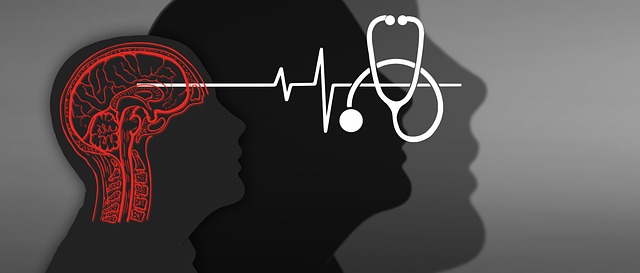Wheat Ridge Depression Therapy emphasizes understanding and regulating emotions as a cornerstone of mental health improvement. They teach self-awareness, stress reduction techniques, and mindfulness to help individuals manage their emotional responses effectively. Techniques like Cognitive Behavioral Therapy (CBT) and mindfulness training are utilized, empowering clients to identify negative thought patterns, practice present-moment awareness, and reduce impulsive actions. By incorporating these skills into daily life, individuals can enhance emotional well-being, self-empathy, and resilience against anxiety and stress, ultimately achieving better mental health outcomes.
Emotion regulation is a vital skill for navigating life’s challenges and fostering overall well-being. This article explores effective techniques teaching emotion regulation, highlighting their significance in managing stress, anxiety, and depression. We delve into common strategies used by professionals, such as those employed by Wheat Ridge Depression Therapy, to help individuals gain control over their emotions. By understanding these techniques and implementing them in daily life, folks can enhance their emotional resilience and lead more fulfilling lives.
- Understanding Emotion Regulation and Its Significance
- Common Techniques for Teaching Emotion Regulation
- Implementing These Techniques in Daily Life
- The Role of Wheat Ridge Depression Therapy in Emotional Well-being
Understanding Emotion Regulation and Its Significance

Understanding emotion regulation is a fundamental step in improving one’s mental health and overall well-being. It involves recognizing, accepting, and managing our emotional responses effectively. In the context of Wheat Ridge Depression Therapy, this process takes center stage as a powerful tool to combat depression and related disorders. By teaching individuals to regulate their emotions, therapists empower them to navigate life’s challenges with greater resilience and flexibility.
Emotion regulation isn’t just about suppressing or ignoring feelings; it’s about fostering self-awareness exercises that enable people to understand the connection between thoughts, feelings, and behaviors. This awareness is crucial for implementing stress reduction methods and emotional well-being promotion techniques. Through these practices, individuals can learn to respond mindfully to their emotions, reducing impulsive actions and cultivating a deeper sense of calm and balance.
Common Techniques for Teaching Emotion Regulation

Teaching emotion regulation skills is a crucial aspect of mental health support, and several techniques have proven effective in helping individuals manage their emotions constructively. One widely recognized approach is Cognitive Behavioral Therapy (CBT), which aids in identifying and changing negative thought patterns linked to specific emotions. CBT encourages individuals to challenge distorted thinking, thus promoting healthier emotional responses. For instance, a therapist might guide a client through a step-by-step process to understand and reframe anxious thoughts, leading to better emotional regulation.
Another popular method is mindfulness training, often integrated into practices like meditation and deep breathing exercises. These self-care practices teach individuals to stay present and observe their emotions without judgment. In the context of Wheat Ridge Depression Therapy, for example, mindfulness techniques can empower clients to distance themselves from overwhelming feelings, fostering a sense of calm and improved emotional control. Additionally, healthcare providers can benefit from burnout prevention strategies, such as incorporating regular self-care practices into their routines, which can enhance their ability to support patients in learning effective emotion regulation skills.
Implementing These Techniques in Daily Life

Implementing emotion regulation techniques in daily life can significantly enhance one’s overall emotional well-being. After learning these strategies through therapy, such as those offered at Wheat Ridge Depression Therapy, it’s crucial to integrate them into your routine. Start by identifying triggers that often lead to intense emotions; this awareness is key to managing and regulating feelings effectively. For instance, if specific situations or people consistently evoke strong reactions, practicing mindfulness techniques like deep breathing exercises during these moments can help calm the mind and body.
One simple yet powerful technique to incorporate throughout the day is regular check-ins with yourself. Take a moment to pause and reflect on your emotions, acknowledging them without judgment. This self-awareness allows for the early detection of any rising anxiety or stress, enabling you to employ coping mechanisms promptly. Over time, these practices contribute to building empathy towards oneself, fostering better emotional regulation, and ultimately, promoting anxiety relief.
The Role of Wheat Ridge Depression Therapy in Emotional Well-being

Wheat Ridge Depression Therapy offers a transformative approach to emotional well-being, targeting not just symptoms but the root causes of depression and related mental health issues. By utilizing evidence-based techniques tailored to individual needs, this therapeutic model empowers individuals to develop effective coping strategies. Through specialized programs designed to integrate into existing Mental Health Education Initiatives, Wheat Ridge Depression Therapy contributes to Mental Illness Stigma Reduction Efforts.
The therapy focuses on building resilience, fostering positive self-regard, and teaching practical emotion regulation skills. This holistic approach not only aids in managing symptoms but also promotes lasting behavioral changes, enhancing overall mental wellness. By integrating these therapeutic methods into Mental Wellness Coaching Programs Development, Wheat Ridge Depression Therapy ensures a comprehensive strategy to support individuals in their journey towards emotional balance and improved quality of life.
Emotion regulation is a powerful tool for enhancing overall well-being, and understanding its importance is the first step towards a happier, healthier life. Common techniques, such as mindfulness and cognitive reframing, offer practical ways to navigate and manage emotions effectively. Integrating these strategies into daily routines, with the guidance of professionals like those at Wheat Ridge Depression Therapy, can lead to significant improvements in emotional resilience and quality of life. By learning to regulate emotions, individuals can foster better mental health and create a more balanced and fulfilling existence.














